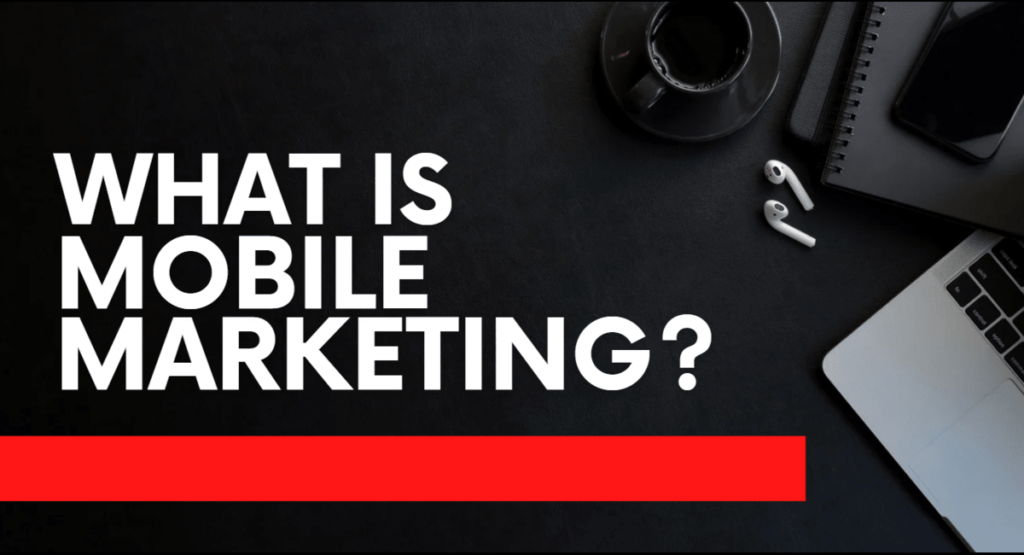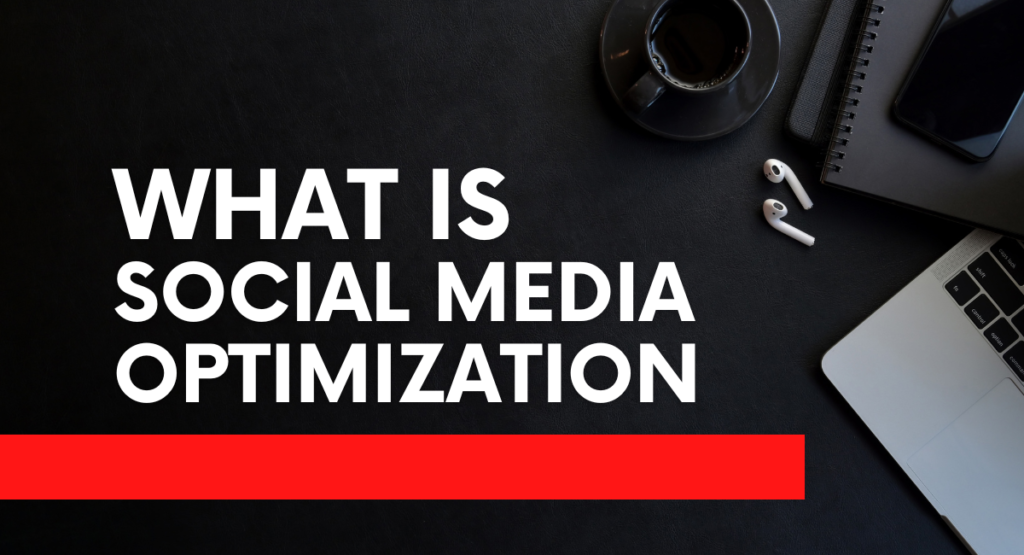Introduction
Definition of Mobile Marketing
Targeting customers via mobile devices, including smartphones and tablets, is the main objective of mobile marketing, a type of digital marketing strategy. It covers strategies including mobile apps, in-app purchases, text messaging, and responsive web design.
- Explanation of mobile marketing as a digital marketing strategy aimed at reaching users on mobile devices.
Customised and location-based content is used in mobile marketing to engage users on their mobile devices. Mobile devices are becoming more and more popular, and because they make it possible for businesses to connect with customers wherever they are and at any time, they are playing a bigger role in today’s digital marketing campaigns.
- Importance of mobile marketing in today’s digital landscape.
Because so many people use cellphones these days, mobile marketing is essential. Because customers are always plugged into their devices, mobile marketing is an effective strategy for expanding one’s audience, improving user experience, and increasing conversions across a variety of digital platforms.
Types of Mobile Marketing
SMS Marketing
Texting customers with promotional or transactional messages is known as SMS marketing. Businesses can send out offers, reminders, and notifications to their customers by using shortcodes. Because SMS marketing is rapid and has a high open rate, it is incredibly effective.
- Overview of SMS campaigns, shortcodes, and the effectiveness of direct messaging
SMS campaigns use text messaging to reach out to customers directly; opt-in and interaction are often made easier with the usage of shortcodes. They are effective due to their high open rates and promptness and offer a direct, personal line of communication.
Mobile Apps
Branded mobile applications allow businesses to interact with customers and offer customised experiences through push notifications, exclusive content, and in-app incentives. Apps increase brand loyalty due to their distinctive features, ease of use, and direct line of communication with the company.
- The role of branded apps in engaging users and creating personalized experiences.
Branded applications enhance user engagement through various means, including tailored experiences, exclusive features, and personalised content. They foster stronger ties and brand loyalty by providing a place for frequent and lively user engagement.
Push Notifications
Push notifications are alerts that are sent to a user’s device by an app or website with the intention of encouraging interaction. By offering timely updates, discounts, or customised information, the app or website encourages user interaction even in the absence of active usage.
- Explanation of push notifications and how they drive user engagement.
Push notifications are alerts that are delivered straight to users’ smartphones and may include offers, reminders, or important information. By offering pertinent, personalised information that entices users to connect with an app or website, they increase user engagement.
Mobile Web Marketing
Making websites as responsive and user-friendly as feasible on mobile devices is the aim of mobile web marketing. Since a significant amount of internet traffic comes from mobile devices, having a mobile-friendly website is essential for both user experience and search engine rankings.
- The significance of mobile-optimized websites and responsive design.
Make sure your website has responsive design and mobile optimisation so that it is easy to use and available on all platforms, especially tablets and smartphones. This optimisation results in faster load times, improved search engine rankings, and increased user satisfaction in addition to increasing engagement and conversions.
In-App Advertising
This type of advertising allows companies to interact with customers in a very engaging way by putting advertisements inside of third-party mobile applications. This type of advertising works well for presenting relevant content to certain audiences depending on their app usage patterns.
- Use of third-party apps for advertising and targeting users with relevant content.
Third-party apps help businesses reach a wider audience by allowing them to place advertisements within mobile applications. Through the utilisation of these platforms’ sophisticated targeting features, advertisers may target certain user demographics, interests, and behaviours with tailored content.
Location-Based Marketing
This type of marketing uses geo-targeting to show people customised advertising based on where they actually are. Using this tactic, companies can connect with local clients through relevant marketing, increasing the chance of a conversation and a sale.
- Geo-targeting and location-specific ads to reach nearby customers.
Geo-targeting shows advertisements to users in certain locations based on user location data. By promoting localised deals, events, or services, this tactic assists businesses in connecting with potential customers in the area and encouraging relevance and interaction with the intended audience.
Benefits of Mobile Marketing
High Engagement Rates
Mobile devices often have higher engagement rates than desktop PCs since they are easier to use and always connected. Mobile users frequently interact with content using touchscreens, which leads to more frequent and rapid engagement.
- Discuss higher engagement rates compared to desktop marketing.
Mobile marketing typically gets higher engagement rates than desktop marketing since users are more likely to interact with content when on the go. The instantaneous nature and ease of use of mobile devices promote quicker and more frequent responses.
Targeted Marketing
Utilising user data, targeted marketing tailors advertisements based on device type, location, and behaviour. Reaching target audiences who are more likely to be considering the good or service improves engagement and raises conversion rates in addition to increasing relevance.
- Ability to target users based on behaviour, location, and device type.
Targeted marketing uses device preferences, location, and behavioural data to deliver personalised information. Advertisers may increase the effectiveness and return on investment of their advertising by keeping these factors in mind and ensuring the right people see them at the right time.
Cost-Effectiveness
You may evaluate the economic viability of your advertisement by looking at its Click-Through Rate (CTR), which shows you how well it works relative to its cost. Since a high CTR often translates into a lower cost per click, digital ads are more economical than traditional types of advertising.
- Lower cost per impression compared to traditional advertising methods.
Digital advertising often has a lower cost per impression than traditional methods like print or television advertisements because of its focus on CTR. This efficiency allows for a higher return on investment for your marketing budget and more targeted spending.
Instant Communication
Using digital channels that offer instantaneous interaction, businesses may communicate with customers in real-time, enabling rapid responses and immediately stimulating participation. This promptness makes it easier to handle issues, answer questions from customers, and seize opportunities as they arise.
- Real-time reach and immediate interaction with users.
Due to real-time reach, businesses can engage with their audience instantly through platforms like social media and chat apps. This immediate interaction strengthens relationships, promotes timely feedback, and enhances customer service by providing quick answers and updates.
Key Strategies for Successful Mobile Marketing
Responsive Web Design
With the use of this approach, websites can adapt to different screen sizes and devices and provide a consistent user experience on desktop, tablet, and mobile devices. This optimisation keeps search engine ranks high while also improving usability and engagement.
- Importance of optimizing websites for mobile devices.
Websites need to be mobile device optimised due to the rise in mobile traffic. A mobile-friendly website is easier to navigate and use on all devices, and it also gets better search engine results, reduces bounce rates, and enhances user experience.
Personalization
Personalisation is the process of tailoring user experiences and content to an individual’s preferences, habits, and demographics. By offering pertinent and customised interactions, businesses may increase customer satisfaction, user engagement, and conversion rates—all of which can increase the effectiveness of their marketing initiatives.
- Utilizing customer data to personalize marketing messages
By using consumer data, businesses may tailor marketing messages to specific preferences, behaviours, and demographics. Personalisation promotes relevance, boosts engagement, and increases the possibility of conversion by taking into account each customer’s own needs and interests.
Segmentation
The technique of dividing your audience into distinct groups based on characteristics like behaviour, demographics, or previous purchases is known as segmentation. This method increases engagement and boosts conversion rates by addressing the unique needs of each group and enabling more precise targeting and personalisation.
- Targeting the right audience segments for better conversion rates.
By ensuring that your marketing efforts reach people who are most inclined to interact with your product or service, identifying and targeting certain audience segments improves conversion rates. To effectively tailor communications, this entails analysing demographics, interests, and behaviours.
Mobile SEO
In order to enhance user experience and search engine results, mobile SEO focusses on optimising your website for mobile devices. This includes making sure that websites load quickly, have responsive layouts, and are mobile-friendly—all essential given the rising percentage of web traffic derived from mobile searches.
- Optimizing for local search and improving mobile website performance.
Customising your website’s content and layout to appeal to local users will increase its exposure in local search results. This process is known as local search optimisation. Enhancing the usability and speed of a mobile website is essential for attracting and keeping mobile users as well as for raising search engine results.
Social Media Integration
The process of combining your social media accounts with other online platforms to create a unified online presence is known as social media integration. This strategy enhances user experience, increases traffic from all directions, and makes it simple to link your website to social media profiles.
- Leveraging mobile platforms for social media advertising and engagement.
If you advertise on mobile platforms, users will see your social media ads while they are on the go. Mobile-friendly content and advertisements boost interaction, encourage conversions, and take advantage of the expanding trend of mobile internet usage for efficient marketing.
Challenges in Mobile Marketing
Privacy Concerns
Concerns about privacy include things like data security and user permission. Safeguarding personal information, getting express consent, and adhering to privacy regulations are essential for upholding user privacy and preserving confidence.
- Discuss privacy issues, including user consent and data security.
User permission and data security are at the centre of privacy concerns in digital marketing. It is imperative to obtain clear consent from consumers prior to data collection. Furthermore, preventing breaches and illegal access to this data preserves user privacy and fosters confidence.
Ad Blockers
Tools called ad blockers are used to stop adverts from appearing on websites. They have an effect on digital marketing by decreasing the exposure and efficacy of ads, which forces marketers to look into less obtrusive ad styles and other techniques.
- The impact of ad blockers on mobile marketing campaigns.
Mobile ad exposure can be greatly reduced by ad blockers, which can have an impact on click-through rates and the overall efficacy of campaigns. They block ads from appearing, which may result in lower audience engagement and force marketers to come up with other methods of connecting with them.
Device Fragmentation
“Device fragmentation” refers to the challenge of modifying marketing content for various mobile devices, operating systems, and screen sizes. Sustaining consistency and effectiveness across several platforms is crucial for an impeccable user experience and optimal marketing results.
- Adapting to different mobile devices, operating systems, and screen sizes
This means creating designs that are responsive and ensuring that they work with a variety of operating systems. This approach enhances the user experience by providing standardised, mobile platform-optimized information and functionality.
Trends in Mobile Marketing
Mobile Commerce (m-commerce)
Purchasing and selling products and services through mobile devices is known as mobile commerce. Online shopping has significantly increased as a result of the popularity of smartphones and tablets, enabling customers to make purchases whenever and wherever they choose.
- Growth of online shopping through mobile devices.
The rise in smartphone usage and the improvement of mobile internet connection has led to a surge in online purchasing on mobile devices. Nowadays, customers want the ease of buying while they are on the go, which has increased demand for e-commerce platforms and apps that are mobile-friendly.
Voice Search
Voice search enables users to speak commands to digital assistants and do searches. With the widespread usage of voice-activated devices and smart speakers, this technology has expanded quickly, impacting user search behaviour and SEO tactics.
- Rising importance of optimizing for voice search on mobile.
With the rise in popularity of virtual assistants like Siri and Google Assistant, voice search on mobile devices is becoming more common. For businesses to capture voice-driven questions and improve their exposure in search results, voice search optimisation is essential.
Augmented Reality (AR)
Augmented Reality (AR) improves user experiences by superimposing digital data over the physical world. Through a more interactive shopping experience, augmented reality (AR) in e-commerce enables buyers to virtually try things before making a purchase, increasing engagement and decision-making.
- The use of AR in mobile apps to enhance the customer experience.
Augmented reality (AR)-enabled mobile apps boost user engagement by allowing users to interact with virtual elements superimposed on the real world. It improves customer experiences by providing immersive, customised, and engaging experiences such as interactive product displays or virtual try-ons.
5G and Its Impact
5G networks provide improved connectivity and faster data rates, which significantly increase mobile marketing. By providing more seamless and excellent experiences like improved mobile ads, real-time augmented reality apps, and quick video streaming, this eventually increases user engagement and satisfaction
- How 5G networks are enhancing mobile marketing with faster speeds and better connectivity.
Mobile marketing is being completely transformed by 5G networks, which are offering more quicker speeds and better connectivity. This allows for smoother streaming, real-time interactions, and richer, more engaging mobile experiences, all of which increase user engagement and drive more successful marketing campaigns.
Case Studies of Effective Mobile Marketing
Brand Success Stories
- Examples of businesses that successfully implemented mobile marketing strategies.
Nike:
Nike’s Nike+ app, which links users to a community and tracks exercises, is an example of how the company used mobile marketing. User engagement and brand loyalty were boosted by the wearable technology integration and personalised experience offered by the app.
Starbucks:
Starbucks has effectively employed a mobile marketing approach by means of its rewards app, which provides customised promotions and order-ahead capabilities. The average order value and client retention were greatly enhanced by the app’s incentives system and ease of use.
At Sephora:
Personalised beauty recommendations and virtual try-ons are available on the Sephora smartphone app. Augmented reality and a loyalty program were used by Sephora to improve the in-store and app experiences for customers and generate notable gains in app engagement and sales.
Conclusion
It’s essential to comprehend and maximise Click-Through Rate (CTR) if you want to assess and improve your digital marketing campaigns. Businesses can boost engagement, cut expenses, and improve the performance of their advertising campaigns by concentrating on increasing CTR. By ensuring that your words are understood and resonate with your target audience, effective CTR management will increase the effectiveness of your marketing campaigns.
FAQ’s
What is mobile marketing in simple terms?
Using strategies like SMS, apps, and mobile ads, mobile marketing is the process of connecting with and interacting with consumers via their mobile devices, such as smartphones and tablets.
How does mobile marketing differ from traditional digital marketing?
While traditional digital marketing frequently concentrates on desktop platforms, which may lack mobile optimisation, mobile marketing targets people on their mobile devices with personalised content and adverts.
How can small businesses benefit from mobile marketing?
Small businesses can gain from mobile marketing by using cost-effective techniques to increase traffic and sales, reaching a wide audience with tailored ads, and enhancing customer interaction.
How can I optimize my website for mobile users?
Make sure your website is mobile-friendly by making sure it has a responsive design, loads quickly, is simple to navigate, and has obvious calls to action. A flawless user experience may be ensured by testing on many devices.






